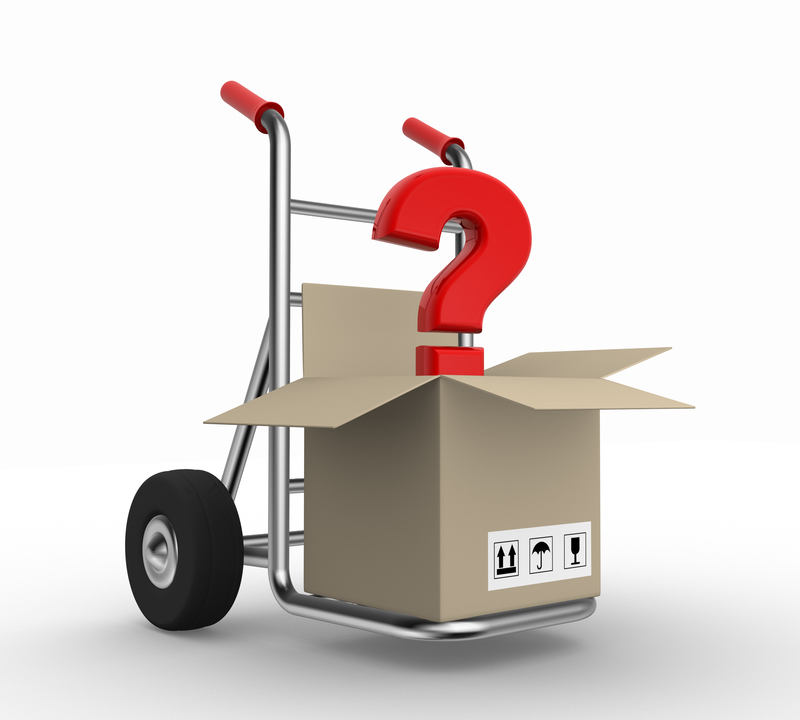Craft a Calm and Efficient Moving Plan
Posted on 25/05/2025
Craft a Calm and Efficient Moving Plan: Your Guide to Stress-Free Relocation
Moving to a new home can be one of life's most exciting adventures, but it can also bring about high anxiety and stress. The process of packing, organizing, and transporting your belongings--while managing your schedule and emotions--can seem overwhelming. However, with a well-thought-out moving plan, you can ensure your transition is both calm and efficient. In this comprehensive guide, you'll discover the key steps, expert tips, and practical checklists to simplify your relocation and foster a positive moving experience.
Why You Need a Thoughtful Moving Plan
A well-organized moving strategy is essential for reducing chaos and setbacks during any relocation. By mapping out each step, you protect yourself from last-minute surprises and ensure nothing important falls through the cracks. Here's why investing time in creating a moving plan is invaluable:
- Prevents Forgotten Tasks: A checklist ensures everything gets done on time.
- Saves Money: Helps you avoid rush fees or unnecessary expenses.
- Reduces Stress: Knowing what comes next keeps anxiety at bay.
- Keeps Everyone Informed: Task allocation streamlines responsibilities for families or roommates.
- Improves Efficiency: Optimizes packing, loading, and transport for a more seamless move.

Step 1: Begin with a Moving Timeline
Crafting an efficient moving plan starts with establishing a timeline as soon as your move becomes official. Ideally, give yourself at least 6-8 weeks to prepare, but if you have less time, adjust your schedule accordingly.
Sample Moving Preparation Timeline
- 8 Weeks Before Moving: Research moving companies, set your budget, create digital and paper files for moving documents, and begin decluttering.
- 6 Weeks Before: Begin selling, donating, or discarding items you don't wish to move. Gather packing materials and start packing non-essential items.
- 4 Weeks Before: Notify landlords, utility companies, and other service providers. Arrange for mail forwarding.
- 2 Weeks Before: Confirm all bookings, transfer prescriptions, and continue packing. Plan meals to use up food in your pantry and freezer.
- Move Week: Pack essentials, clean your old home, and perform a final walkthrough.
Step 2: Declutter for a Calmer Move
One of the easiest ways to make your move more efficient is to reduce how much you bring with you. Moving offers a rare opportunity to sort through your belongings, retaining only what adds value to your life.
Tips for Efficient Decluttering
- Room-by-Room Approach: Tackle one space at a time for manageable progress.
- Use the Four-Box Method: Label boxes as Keep, Donate, Sell, and Toss to easily sort items.
- Consider Sentimental Items Carefully: Make intentional decisions about what to bring to your new space.
- Host a Garage Sale or Use Online Selling Platforms: Offset moving costs and lighten your load.
Step 3: Choose the Right Moving Option
Selecting the best way to transport your belongings is crucial for an orderly moving plan. Each method has its pros and cons.
Moving Options to Consider
- DIY Move: Renting a truck and recruiting friends is cost-effective but requires more effort and time management.
- Professional Movers: Hiring a reputable moving company can reduce physical and mental strain, ensuring a calm moving day.
- Hybrid Approach: Mix professional transport with DIY packing for an efficient, cost-friendly move.
- Portable Moving Containers: Ideal if you need flexible loading and unloading schedules.
Compare quotes, read reviews, and confirm licenses and insurance for any moving company. Prioritize clear communication and written contracts to keep your moving plan on track.
Step 4: Streamlined Packing Strategies
Packing can be the most time-consuming aspect of moving, but with structured organization, you can efficiently tackle this task. Here are expert tips for stress-free packing that supports a calm moving plan.
Packing Do's and Don'ts
- Do start early and pack a few boxes each day.
- Don't overpack boxes: Heavier items should go in smaller boxes, lighter items in bigger ones.
- Do use high-quality materials: Invest in sturdy boxes, packing tape, and protective wrap.
- Don't forget to label: Write the destination room and summary of contents on each box (use color codes for an extra layer of clarity).
- Do keep an inventory: Document valuable items and key pieces for peace of mind.
- Don't pack essentials away: Prepare an "Open First" box with critical items such as toiletries, chargers, medicines, basic kitchenware, and important documents.
Step 5: Managing Moving Day Like a Pro
The big day is here, and it can feel chaotic--even with thorough preparation. To ensure your move is as calm and efficient as possible, keep these moving day best practices in mind.
- Prepare Everything the Day Before: Finish packing, disassemble furniture, and ensure boxes are ready by the door.
- Label Keys and Access Cards: Keep all entry and exit access handy and organized.
- Keep Everyone in the Loop: Inform your helpers or movers of your plan, timelines, and any special instructions.
- Take Time for a Final Walkthrough: Check closets, drawers, and cabinets to ensure nothing is left behind.
- Have Snacks and Water Ready: Nourishment keeps energy and spirits high.
- Stay Flexible: Be prepared for unexpected delays or changes, and remember to stay calm.
Step 6: Settle in with an Organized Unpacking Plan
Unpacking can seem daunting, but an efficient moving plan accounts for your arrival as well as your departure.
Unpacking Like a Pro: Key Strategies
- Start with Essentials: Open your "Open First" box and set up bedrooms and bathrooms right away.
- Work Room-by-Room: Focus on one area at a time to avoid scattered clutter.
- Assemble Furniture First: Large items provide structure and make arranging smaller items easier.
- Remove Boxes Immediately: Flatten or recycle empty boxes as you go to prevent them from piling up.
- Create 'Homes' for Belongings: Assign a specific place for each item to speed up organization in your new space.
Expert Tips for a Calm and Efficient Moving Plan
- Create Digital Checklists: Use apps or spreadsheets for real-time tracking of your moving tasks.
- Designate a Moving Folder: Keep all important documents--leases, contracts, inventories--conveniently accessible.
- Communicate with All Parties: Notify schools, workplaces, and family members of your moving schedule.
- Hire Help if Needed: Don't hesitate to contract movers, cleaners, or babysitters to alleviate stress.
- Pack Early and Consistently: Packing a little each day is more manageable than a last-minute rush.
- Treat Yourself With Compassion: Acknowledge the stress of moving and schedule time for self-care.
Common Moving Mistakes to Avoid
Even with the best moving plan, pitfalls can occur. Here are frequent mistakes to avoid for a smooth and calm relocation:
- Procrastination: Delaying preparations increases stress and reduces your options.
- Skipping Inventory: Not tracking items can lead to loss or damage.
- Ignoring Insurance: Overlooking coverage can be a costly mistake if the unexpected happens.
- Forgetting Utilities and Change of Address: Ensure services and mail are ready at your new location.
- Overloading Boxes: This not only risks injury but also damages your belongings.
- Neglecting Clean-Up: Cleaning your old home ensures you leave on good terms and fulfills lease agreements.

Frequently Asked Questions about Creating a Moving Plan
- How early should I start planning my move?
Ideally, start creating your moving plan as soon as the move is confirmed, giving yourself at least 6-8 weeks to organize the details. - What's the best way to stay organized while moving?
Use digital or paper checklists, label everything, and designate a central folder for essential documents. - How do I keep my move calm and stress-free?
Plan early, take breaks, ask for help as needed, and give yourself grace during the process. - What should I pack last during my move?
Essentials you'll need immediately upon arrival, such as toiletries, chargers, important documents, and snacks. - Is professional moving help worth it?
If your budget allows and the move is complex, professional movers can be a valuable investment in keeping things efficient and calm.
Conclusion: Achieve a Peaceful, Efficient Move with the Right Plan
Relocating doesn't have to be overwhelming. By following a calm and efficient moving plan, you prepare yourself for a smoother, more enjoyable transition. Prioritize organization, allow yourself ample time, and don't hesitate to seek help where you need it. With intentional preparation, thoughtful checklists, and smart strategies, moving can be a rewarding fresh start rather than a source of stress.
Ready to create a moving plan that ensures peace of mind? Start today, use these expert strategies, and transform your moving day into a memorable and positive milestone in your life journey.
Latest Posts
The Unseen Hazards of Piano Moving Without Help
Achieve maximum cleanliness in your house before moving out
Pre-Move Decluttering: Essential Tips and Tricks
The Art of Packing: Tricks for a Flawless Move
Practical tips for the seamless relocation of your bed and mattress



